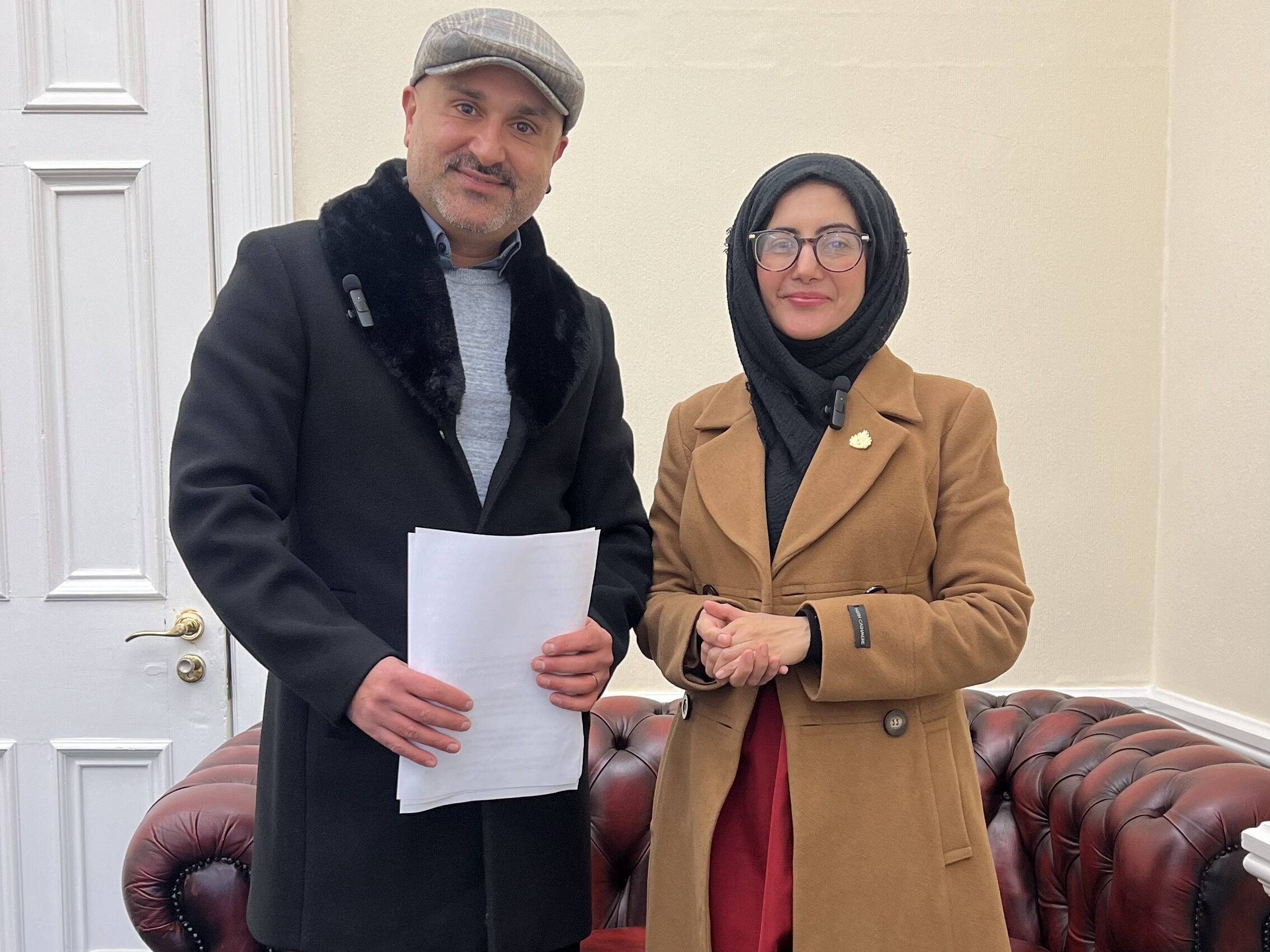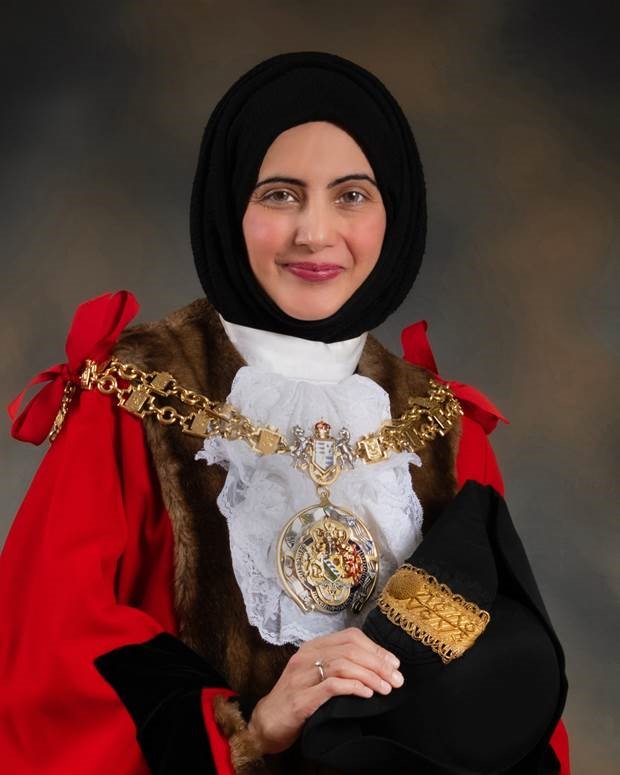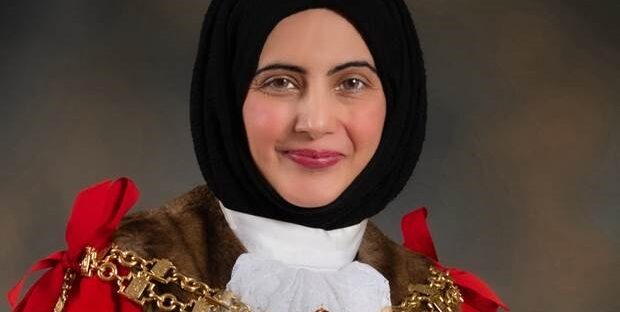UK’s first Muslim mayor breaks down cultural barriers in Tameside
- Cllr. Tafheen Sharif reflects on her role as the UK’s first Muslim mayor
- Featured image credit: Faraz Arian
In the heart of Tameside’s political history stands a trailblazer: a British-Kashmiri woman who broke both cultural and societal barriers to become the first ethnic minority and Muslim mayor of the borough.
Cllr. Tafheen Sharif’s journey is one of resilience, representation, and an unyielding dedication to serving her community.
Born in the UK and raised with a strong sense of cultural identity, she brought her heritage and faith to the forefront of her public service. Her tenure as Tameside’s mayor – between 2023 and 2024 – marked a significant milestone and set a precedent for inclusivity, inspiring a new generation of leaders from ethnic minority backgrounds.
Speaking exclusively to NQ, Cllr. Sharif delved further into her life as Tameside Mayor: her aspirations began with a deep desire to represent underrepresented communities. Over the years, she built an impressive portfolio of work spanning legal, governance, community safety, health and public service. Her appointment as mayor was the culmination of years of dedication as she shattered glass ceilings and challenged stereotypes.
“I felt it was too important. If I didn’t do it now, who would?” she remarked, reflecting on the significance of her mayoral role.
Her time as mayor was marked by initiatives that celebrated diversity and elevated communities within the borough. Under her leadership, Tameside became an international example of inclusivity, a legacy that continues to inspire.

‘It’s time for a change’
The journey to becoming mayor was not without obstacles. Early in her political career, she encountered resistance, including prejudices and overt hostility. Campaigning in a historically male-dominated ward, she received threatening phone calls and was often discouraged from attending meetings.
“When I stood, I was told I would never be elected,” she said. “That pushed me further. I thought, ‘It’s time for a change, especially to the ward I was born in’.”
Despite scepticism, she rose above it all, and worked tirelessly to gain trust and foster relationships with her constituents. Her perseverance turned narrow victories into landslide wins, cementing her as a respected and trusted leader in her community.
Faith, culture, and leadership
As a Muslim woman who wears the hijab, her leadership represented a powerful statement of inclusion and identity. She faced questions about her faith and choices, with some making assumptions about her capabilities: “Some people have asked me if my husband makes me wear the hijab,” she shared. “But when they hear me address audiences on various issues, they’re often left surprised.”
Juggling young family responsibilities with her demanding career, she proved that women could excel in public life while staying true to their cultural values. Despite long days that often started at 8 a.m. and ended well past midnight during her mayoral year, she prioritised family life, raising four children during her political journey.
As Tameside’s first Muslim mayor, she drew inspiration from historical Muslim women leaders like Khadijah (RA) and Fatima al-Fihri, and emphasised the importance of reclaiming Islam’s progressive legacy on women’s rights. “Our religion teaches us that women are equal to men and have the right to participate in society in any way they choose; women can be strong, independent, and compassionate,” she said.
Her advocacy extended beyond local politics, urging global communities—especially in the Middle East and South Asia—to create more opportunities for women in fields like politics, education, and engineering.
“In places like the Middle East, progress is happening, but it’s still slow. Women need mentors and systems that support their ambitions,” she said.

A vision for the future
Now, as First Deputy and Cabinet Member for Population Health and Equalities, Cllr. Sharif continues to make an impact on both the local and national stage. In this role, she leads efforts to address health inequalities, tackle systemic barriers to equal opportunities, and ensure everyone in Tameside has access to the resources they need to thrive.
Looking back on her groundbreaking career, she remains committed to creating a society where barriers are dismantled, and diversity is celebrated. She acknowledged the progress made in the UK, but still highlighted challenges such as the gender pay gap and underrepresentation of women in leadership roles as key issues.
“There’s still a lot of work to be done,” she said. “Women should be paid fairly and equally, and barriers to success must be broken.”
Her message to young people and aspiring leaders was clear: “Tap into your unique strengths and use them to make a difference in other people’s lives: we all have a role to play in improving society.”


